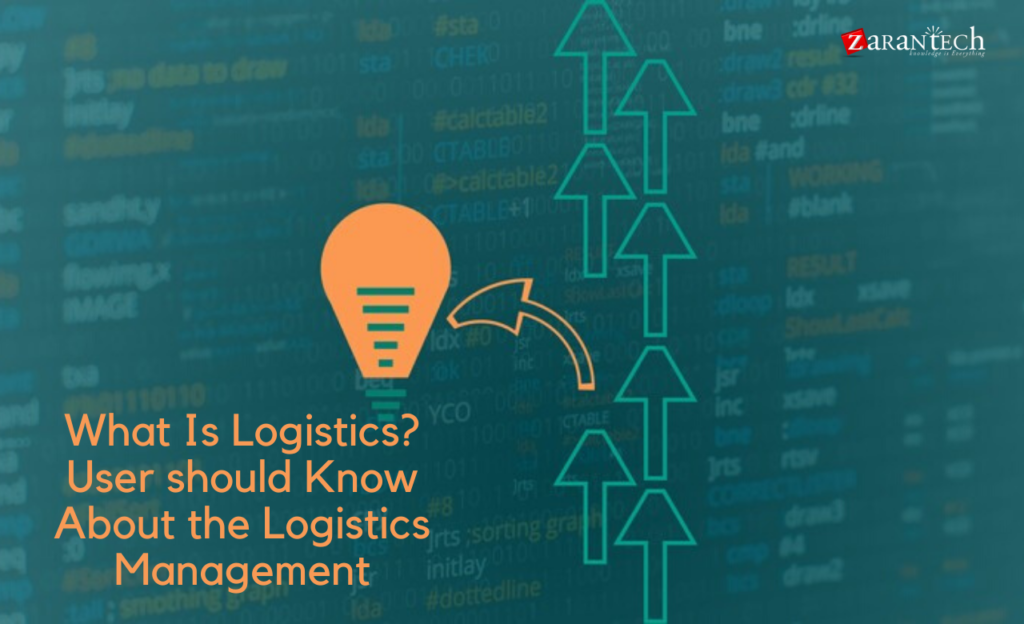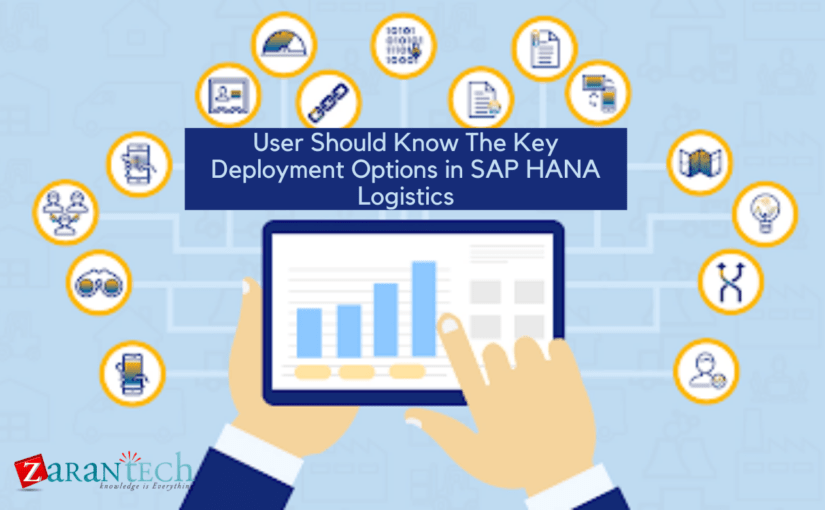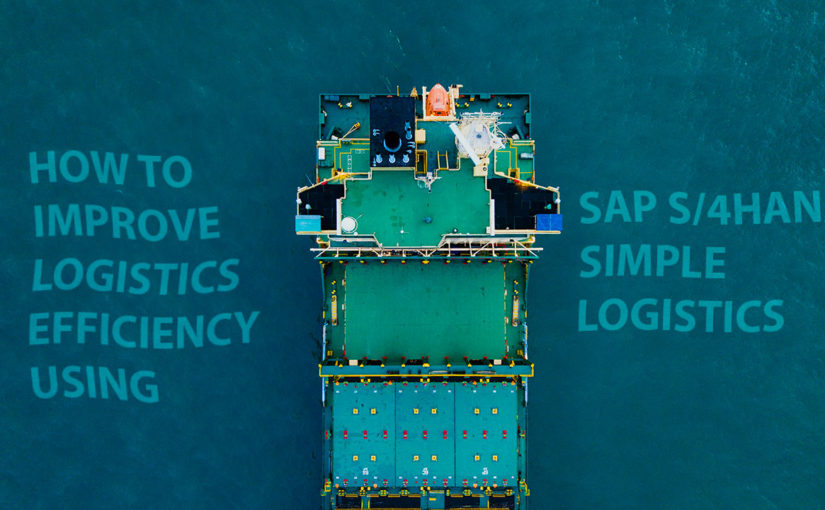What Is Logistics? User Should Know About the Logistics Management
Category: SAP S/4HANA Logistics Posted:May 14, 2020 By: Ashley Morrison
Logistics is extensively called the procedure of collaborating and moving sources such as equipment, food, fluids, stock, products, and people from one place to the desired destination. It was originally a military-based term that was used to describe how the military force obtained, stored, and moved equipment and products. In the supply chain and business sense, logistics is the management of the flow of things between the point of origin as well as consumption, so to fulfill the demands of consumers or firms. The logistics of the previously mentioned resources include the integration of production, product packaging, warehousing, transportation, safety and security, materials management as well as information flow.
The different classifications of logistics are:
- Third-Party Logistics (3PL).
- Fourth Party Logistics (4PL).
- Inbound Logistics.
- Outbound Logistics.
- Reverse Logistics.
- Green Logistics.
- Construction Logistics.
- Digital Logistics.
- Military Logistics.
Logistics Management
Logistics Management focuses on the efficiency and effective management of daily activities concerning the production of the business’s finished goods and services. This type of management forms part of Supply Chain Management and plans, implements as well as controls the reliable, effective ahead, and reverse flow and storage goods. This process, as mentioned, happens between the point of origin and the point of consumption in order to meet the requirements set by customers. The major purpose of logistics management is to allocate the right amount of a resource or input at the correct time. It is also ensuring that it gets to the set area in a proper condition while providing it to the appropriate internal or external customer.
Reliable supply chain and logistical procedures are important as they reduce expenses as well as maintain & enhance productivity. Substandard logistics, on the other hand, lead to late deliveries, failure to meet consumer needs, and in the end, ultimately creating business to crumble. Customers regularly demand better services, and this has prompted supply chain role players to intend to supply rapid, accurate, and quality service. Logistics Management is responsible for making certain that this aim materializes, in which consumer complete satisfaction is established.
Logistics Management is also important for creating visibility into any company’s supply chain. As historic data is assessed and the movement of goods is tracked in real-time by sophisticated Transportation Management Systems (TMS), logistics use this information for process optimization and also the avoidance of potential disturbances.
Additionally, Supply Chain visibility creates ground for major cost savings in operations. The correct logistics management process raises earnings, as well as gives business control and regulates incoming freight; allows for the company of the opposite flow of goods; keeps inventory at optimal levels; and utilizes freight moves on the proper transportation modes. These aspects all contribute to cutting costs.
The Transformation of Logistics Management
The principle of Business Logistics has been said to have actually transformed since the 1960s. As the need to supply companies with materials and resources grew over the years, so did the global expansion of supply chains along with experts that grew in their particular niche & skills. Moving better into the modern age as well, the complexity of logistics procedures have influenced the creation of logistics management software and have launched organizations that concentrate entirely on increasing the activity of resource along the supply chain. Manufacturing firms have even gotten to a point where they select to outsource the management of their logistics to specialists; an area that is controlled by 3rd party Logistics (3PLs) providers.
Want to Boost Your Career? Click here
Additionally, being in the thick of the digital era too, the logistics as well as the supply chain industry has caught up and has taken strides in the direction of digitizing internal and external processes. As stated in our State of Today’s Competitive Supply Chain: Digital, Smaller, and more resilient article, 90% of the supply chain implementation expense will be in the assistance of logistics digital applications and software by 2020. The IoT has already started allowing companies to digitally connect physical assets and enable circulation of data throughout the value chain, connecting every piece of the product lifestyle.
Digitized supply chains have also offered customers insight as well as transparency into the logistics process where they have been allowed responses into their transactions. Every individual now feels like they are in control of the process, eventually leading to customer satisfaction; a factor every business must be striving for. Technology has used numerous advantages and opportunities when it comes to the supply chain and logistics field and these include advanced data analytics, ease of scalability, data security, price conserving, integration of multiple platforms, real-time tracking, and automated procedures.
When speaking of logistics management joining forces with technology, the software leads the conversation because logistics processes can not be highly enhanced without the suitable software systems. Logistics Management Software aims to intend, implement, as well as regulate the flow and storage of items, services, and relevant information. It enhances this procedure, permitting bigger profits with a boost in automation, visibility, communication as well as process efficiencies.
Want to Dive Deeper Into This Topic? Click here
Various Types Of Logistics Management
- Supply
Supply Management deals with the planning and coordination of materials needed in a certain location at a specific time in order to offer support to production or activity. Supply Logistics should have transportation of the materials and storage in addition to plans in place for evaluating the level of supply during different phases of the procedure; making sure that the flow of products aligns with the requirement.
- Distribution
Distribution has to do with managing how a supplied and stored material is sent out to the places where it is required. The process consists of providing material movement (loading, unloading, and transport), management of supply, as well as the accountability of use.
- Production
This type of Logistics Management looks after the stages of combining distributed supplies into a product. This can entail coordination of manufacturing or assembling processes and in the case of applications such as military production, the logistics of coordinating space and areas for production to take place. In construction, Production Logistics will consist of the staging of products to collaborate with the phase of structure happening.
- Reverse
Reverse Logistics Management handles the recalling of material and supplies from the production of assembly processes. In the logistics management of a construction project, for example, reverse logistics plans for the removal of excess material and re-absorption of the material into a stock supply.
Go through our SAP S/4HANA Simple Logistics Interview Questions to crack the Interviews.
Conclusion
Logistics is extensively called the procedure of collaborating and moving sources such as equipment, food, fluids, stock, products, and people from one place to the desired destination. It was originally a military-based term that was used to describe how the military force obtained, stored, and moved equipment and products. Finally, Logistics is the management of the flow of things between the point of origin as well as consumption, so to fulfill the demands of consumers or firms.
I hope that by now you have had an overview of SAP S/4 HANA Logistics. Before you enroll in ZaranTech’s certification course on SAP S/4 HANA Logistics , do check out the S4 HANA Logistics demo:





 99999999 (Toll Free)
99999999 (Toll Free)  +91 9999999
+91 9999999